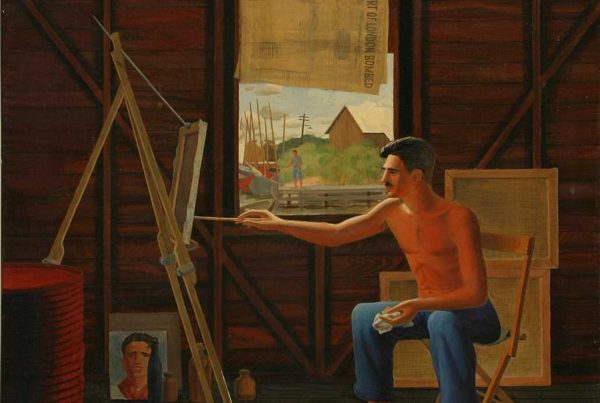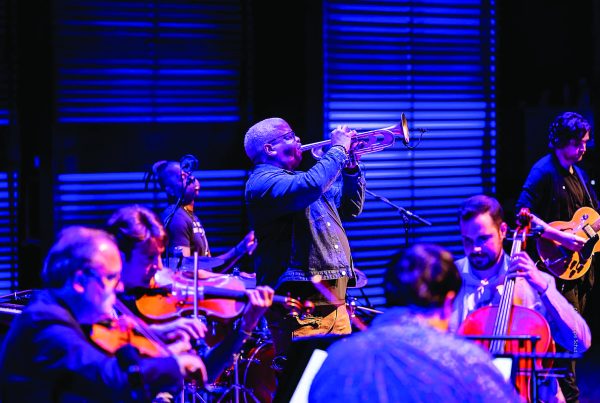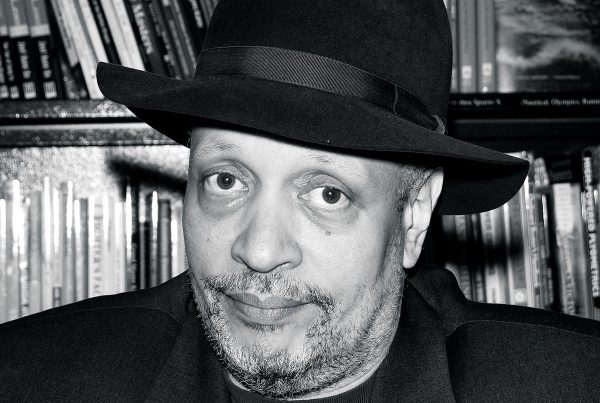
Gal Gadot isn’t the only actress to ride the Wonder Woman rocket to stardom.
In 1975, Lynda Carter, the Miss World USA from three years prior, had nearly exhausted her savings to pursue an acting career that had produced only three bit parts. She was close to returning to her native Arizona when her manager informed her that she’d been cast to play the iconic Diana Prince, the star-spangled Amazonian princess and all-American superhero, for ABC.
As Wonder Woman, Carter fought Nazis and criminal syndicates and extra-terrestrials for three seasons and four years, ensuring a cult audience. Carter’s popularity has grown in the past year, with a new generation of fans discovering the character through this year’s $816 million movie adaptation.
The role paved the way for a robust television and stage career, but it’s her twin calling as a cabaret singer that has been occupying her creativity of late. On her two albums, At Last and Crazy Little Things, Carter croons standards, blues, folk and rock hits, with a third album on the way this fall.
Carter, who will receive a star on the Hollywood Walk of Fame next year, will offer fans a preview of her latest material this Saturday when she brings her concert tour, “The Other Side of Trouble, to Seminole Casino Coconut Creek, complete with a 10-piece complement of Nashville studio musicians.

Tell me about your new show “The Other Side of Trouble,” starting with what the name means to you.
It’s the name of a song I wrote. My writing partner and I were sitting around one day, and we were talking about relationships. I said, “that girl’s trouble, but at least he’s on the other side.” We said, “hey, the other side of trouble!” So it’s an amusing song—“I’m on the other side of trouble when I’m on the other side of you.” And we thought it would be a good name for the show.
We mix some of our own music with some old rock ‘n’ roll, new rock ‘n’ roll and some country and some old blues. We have 10 pieces up on the stage, so it’s a lot of fun.
Is it a straight-up concert, or do you talk to the audience?
I can’t help but talk to the audience. I tell a few stories that are somewhat self-deprecating. I talk a little bit about Wonder Woman, about life, about the music.
What do you get out of singing in front of an audience that you don’t necessarily get from your acting work?
You’re right there with people. For me, it is the same as stage acting. You’re very connected with a piece of work all the way through a show, and you’re depending on the audience’s reaction, and you’re right there with the audience. It’s the same feeling and the same thrill you get when you’re performing in the theatre.
Do you conceive of your concerts like theatre pieces—like you’re moving the audience through a narrative?
Absolutely. The singers I like a lot are storytellers, and you’re taking the audience through an experience. And when I do a cover, my covers are usually telling some kind of a story, and they’re really rethought to quite an extent. If I’m doing a Motown, I’m not a Motown singer, so I retool it in a way that it ends up being a story.
How do you go about selecting which classics you want to record?
That happens over a period of a year or more. It’s usually things I’ve listened to that I want to attempt to do at the beginning of the year. It’s quite a process, going through hundreds of kinds of music, and some of it is stuff that I’ve written, or would write with Grammy-winning writers.
Moving on to your acting career, there’s a lot of pressure associated with playing an iconic character, in terms of balancing the history and expectations with your interpretation. How did you conceive that balance when becoming Wonder Woman?
There was a preconceived notion that women are not going to like you because you’re playing this beautiful goddess. And I thought that was silly, so I wanted to make sure that the women who watched me didn’t feel that way. I thought that she needed to have a goodness and a kindness and that she was a whole woman, as we all are. We’re not just one thing. We’re complicated. And that’s how I crafted the character—that she was sweet and kind, that she would not stand up to any bullies, that she’s more about intellect and integrity and character than she was about anything else.

Has the recent rediscovery of Wonder Woman by a new generation brought renewed interest in the original series?
Of course it has. I have become good friends with Gal and Patty Jenkins, whom I have tremendous respect for. They have their hands full making the next one, and I think it’s really great for the character. I think they did an amazing job.
Do you believe Gal took anything from your interpretation of the character for her own conception of the role?
We never talked about that. That would not be something actresses would necessarily talk about, because everyone has to do it their way. I think that Patty Jenkins and I had the same original feeling of who this woman is, of what a woman is, and empowering her with Wonder Woman’s powers.
What does Wonder Woman have that the testosterone-driven 98 percent of other superheroes lack?
I think it’s just this full and rich personality that she is a whole woman, that she’s not a one-dimensional character. She fights when she needs to and protects when she needs to, and she does it for the right reasons. It’s her humanity that is so outstanding. That’s really what it’s about—the strength of a woman that can’t be victimized. She’s not out there trying to be macho at all. She’s a total feminine woman, but you better not try to take advantage of her, or you’re going to regret it.
Carter performs at 8 p.m. Saturday at Seminole Casino Coconut Creek, 5555 N.W. 40th St., Coconut Creek. Tickets cost $40-$60. Call 954/935-2636 or visit ticketmaster.com.







